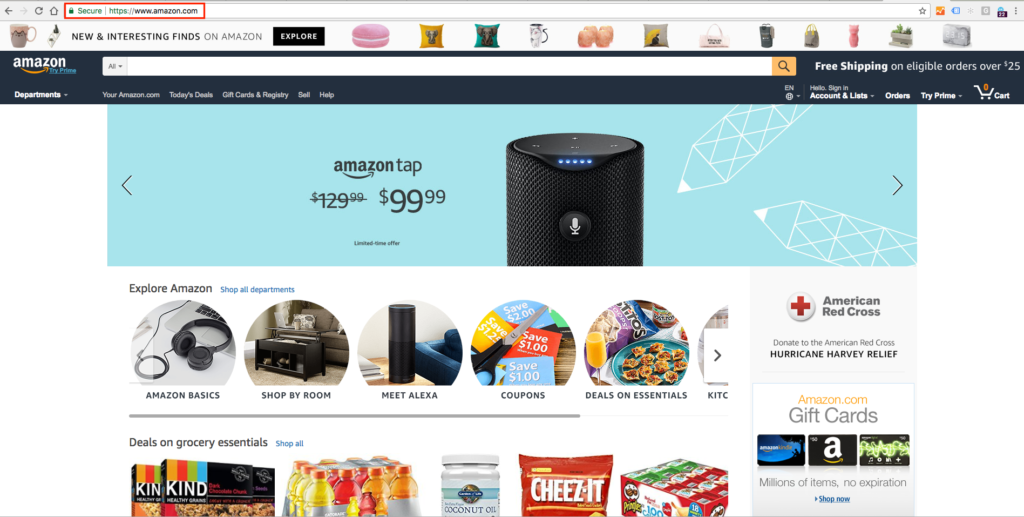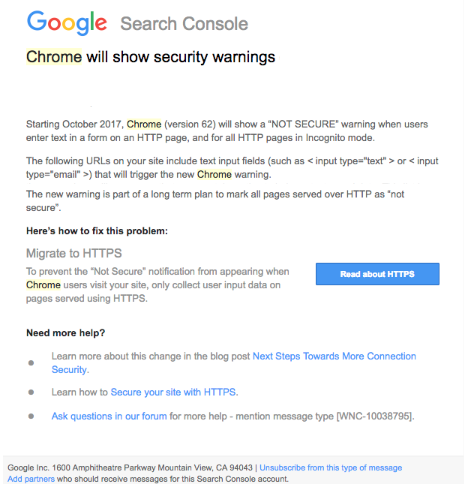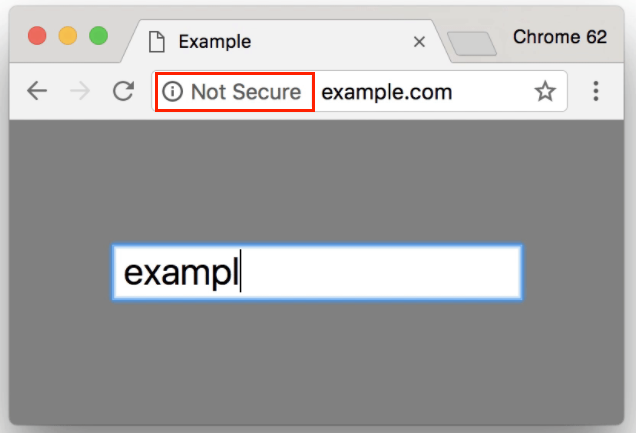By now we are all familiar with seeing the lock on our web browser when we are visiting e-commerce sites. See below the area highlighted where you enter the web address. It has the lock with the word “Secure” to the right of it. This is accomplished by installing a digital certificate on the web server. Securing the server provides the web site visitor a level of confidence that their personal information and payment details will be protected.
While web site owners of e-commerce sites and medical web sites have alway secured their web properties, traditional web sites have never been forced to do so. That is until now. Google has determined that in the very near future, any web site that has an input field is going to require a digital certificate or Chrome will immediately display that the site is “Not Secure”. See the formal communication from Google below.
It does not matter whether you are asking for an email address to sign up for a newsletter, or contact information on a lead form. If the server is not secured, the moment the user types in a field, the web browser will show that the information being entered is “Not Secure” (see the image below). This will not prevent this information from being saved or sent, but subconsciously, many web visitors will abandon filling out these forms or providing their information because they are concerned about it not being secured. If your web site is used for marketing purposes or lead generation, you know you can not afford to lose any new leads or opportunities.
This is a big deal. By many estimations, Chrome has 60% of the market. It is likely that the other browsers may follow suit. We are recommending to all of our clients that they secure their sites immediately. You should consider doing the same.




